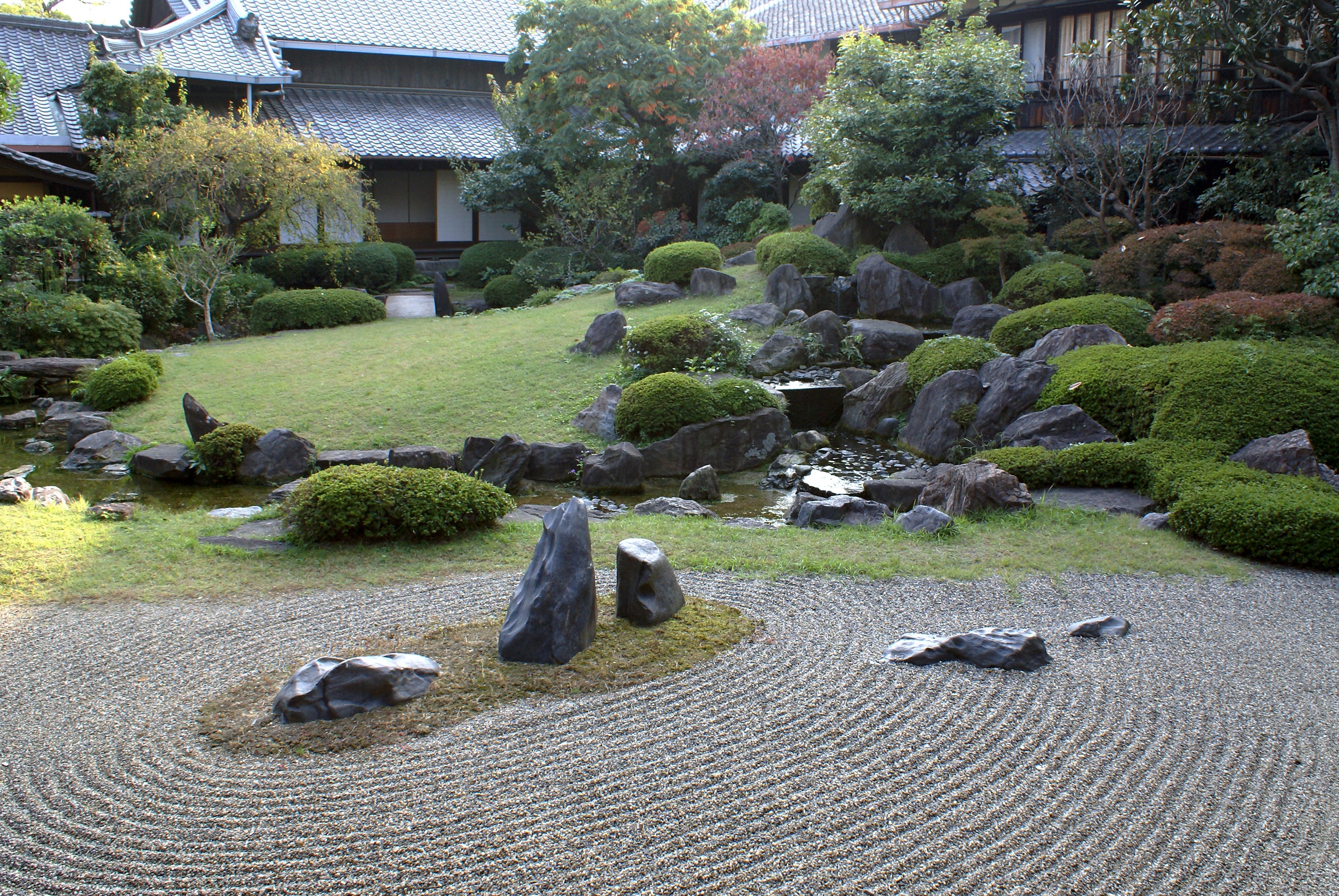
Swirling patterns in the sand represent water while rock formations become mountains or islands. 3152021 The most famous Zen Gardens of this time incorporated moss trees and large lakes or oceans of sand to represent the national landscape with a single large rock often standing in for Mt.
The Zen garden is a synthesis of the foundations of the tradition that tends toward lightness.
Zen sand garden meaning. 3242012 Originated in Japan the Zen rock garden defies the definition of a garden. In almost every conventional sense. It isnt a place to find rows of lush trees an ornate gazebo or a pond filled with beautiful fish.
There is no field of green grass but sand gravel and sparse scattering of moss and nondescript shrubs. 1152021 Zen garden style is simple and is intended to invoke the most meaning from the fewest materials. Rather than creating a garden environment through plants zen gardens usually conjure ideas of a.
3152021 The most famous Zen Gardens of this time incorporated moss trees and large lakes or oceans of sand to represent the national landscape with a single large rock often standing in for Mt. Today Zen Gardens are still found throughout Japan and in the last century have spread to many countries. 4162020 The design and structure of the gardens have been refined over the years but the basic structure remains the same.
How to Create a Zen Garden. Carefully raked sand or gravel with precisely placed rocks are the main parts of a zen garden. Sand raked into a round spiral or rippled pattern represents the sea.
The typical Zen garden is a dry landscape with very few plants and no water included in the garden design. The natural elements usually incorporated into. When peering at or walking beside a pond in a Zen garden the stillness and empty space are important for reflection in a literal sense.
Meditation is the literal meaning of the word Zen and water is a superb conduit for such practice. Falls have several symbolic overtures and dripping indicates the passage of time. Zen gardens also known as Japanese rock gardens or dry landscape gardens were classically created at temples of Zen Buddhism.
They were intended to imitate the intimate essence of nature and they were places where people could meditate about the. Developed by Buddhist monks in ancient Japan with some Chinese influence Zen gardens are often dubbed miniature landscapes. Because their components symbolize aspects of nature.
6142019 Japanese rock gardensor Zen gardens are one of the most recognizable aspects of Japanese culture. Intended to stimulate meditation these beautiful gardens also known as dry landscapes strip nature to its bare essentials and primarily use. Zen gardens use rocks and gravel or sand to recreate the essence of nature.
Swirling patterns in the sand represent water while rock formations become mountains or islands. Sometimes the gardens simply encourage meditation on the meaning of life. For example Kyotos famous Ryoanji Zen garden consists of 15 rocks amid a white sandy space.
The Zen garden is a synthesis of the foundations of the tradition that tends toward lightness. Of all the variants of Buddhism Zen is among the best known and most popular. In the cultures of the West this may be because Zen Buddhism has been one of few traditions of Eastern thought introduced to the West by distinguished personalities.
Zen gardens with their gravel patterns are usually the first association people have when thinking about Japanese gardens. Reduced colors and little vegetation let the eye rest and calm the mind giving the garden a peaceful atmosphere. 4272006 Sand or gravel generally form the matrix of a Zen garden and to keep it looking sharp you need the matrix to be contained.
If you are making a large garden consider using 2. 572011 For centuries monks in Japan have perfected the art of raking zen gardens to reach a meditative state. Now people around the world build Japanese-inspired gardens and rake the gravel or sand into beautiful patterns.
Start by learning how to rake a garden into the water drop design one of the most common patterns. 722020 A zen garden is a Japanese form of dry garden where nature is represented in a miniature form by using stones and sand or gravel. Most Zen gardens are dry gardens made of stones and gravel only without any living components.
Gravel is preferred to sand as it is least disturbed by wind and rain.